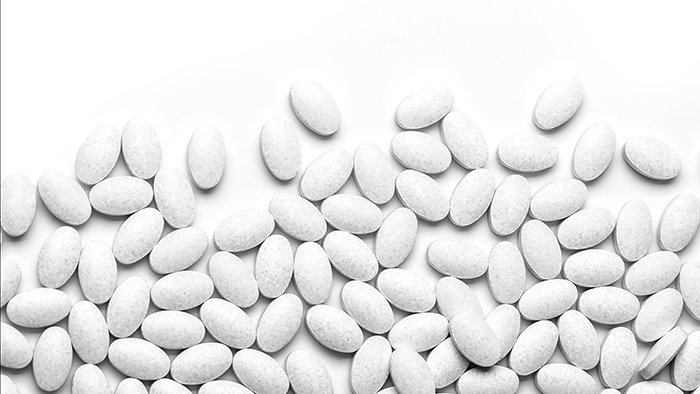Teri didn’t decide she wanted to be a drug addict. There was no plan, no conscious decision. In fact, when she was in high school she dreamed of becoming a nurse.
Life doesn’t always go according to plan.
This story is about a woman who grew up in Powell River. It’s about a girl who had a happy childhood with a family who loved her.
It’s about a woman who attended school here and who partied here.
Because of this community’s fentanyl crisis, Teri was inspired to share the story of her drug addiction, to promote understanding. Why do people do hard drugs? Knowing the dangers, why don’t they just quit?
On May 20, Teri celebrates a landmark anniversary: two years clean. As those in recovery know, every single day of not using drugs to escape from problems or to avoid feeling bad emotions is a success.
Like many 14-year-olds, Teri started smoking cigarettes and drinking alcohol. It seemed like no big deal. Unlike many West Coast girls, she never really liked pot.
“My first line was on my 27th birthday,” Teri told Powell River Living. “That was the first time I tried cocaine. It wasn’t a big thing in the beginning, and it wasn’t until I started working at the bar. Not long after that, I did it again.”
Drugs were easily available at the bar where she worked.
“People I would never have associated with before became my closest friends. Because I worked nights, all my old friends were just getting off work when I was going to work. I partied with bands, and there would be people doing rails. It became a way of life.”
Boyfriends came and went. Her then-fiance was worried about her drug use and wanted her to get help. She tried hypnotherapy but she wasn’t ready to stop.
Her next boyfriend was a drug user and their relationship centered more comfortably around their shared drug use. They were both working full-time and living in Surrey.
Soon, all their money went into supporting their cocaine habits. That relationship ended and Teri moved back to Powell River.
The next boyfriend remained a partner for several years. They got along well in the beginning. Both had well-paying jobs so payday was “party time.”
This relationship differed in that this partner not only liked to use alcohol and cocaine, but he also had an opiate habit – he liked crack. She didn’t.
“There were lots of fights,” Teri recalled. They fought over money, over drugs, and over priorities. Finally, after finding a syringe in his pocket she confronted him.
“He was angry that he’d been found out. He kept saying, ‘You think you’re better than me.’ I kept trying to get away from him but he was relentless. He followed me everywhere I went. Finally, I stuck out my arm and said: Just do it! I’m smart enough never to do it again.”
And that, says Teri, was the first time she ever injected drugs.
That injection was the beginning of the end. Everything went downhill from there. “Once you whack, you never go back,” she says shaking her head.
Opiate use (in the form of Dilaudid, a hydromorphone pain medication) started shortly afterwards. Her boyfriend would give her pills to come down from periods of heavy cocaine use. Several months later she started taking non-prescribed opiates to relieve chronic pain caused by arthritis and bursitis.
“I lost my job, my apartment and my dog all in one day.”
Teri was 33 years old at the time. Looking back, she can see how her life was unravelling. But when it was happening in 2002, she didn’t realize it.
Two years later, Teri and her boyfriend moved back to Surrey for better paying jobs.
“I was trying to move away from my problems and start a new life,” she said.
Opportunities were better there…for a while. But their relationship was fraught with conflict, violence, and breakups.
She remembers making out grocery lists that said:
• Crack
• Beer
• Cigarettes
• Milk
• Cheese
• Eggs
• Bread
• Butter
“We used to joke about it and say if we lose our grocery list people will think we’re nuts. Looking back, I realize we were nuts.”
She came back to Powell River for a visit but returned to Surrey. This time alone.
This, says Teri, was the lowest time in her life. She couldn’t pay the rent. When she had to move out, she was sick with pneumonia. She couldn’t move her belongings out of her apartment on her own and took two men up on their offer to give her a hand.
“They took everything I owned and I never saw them again.”
For a while, she was homeless.
“When I was on the street I began to shake and I couldn’t stop. I began shaking uncontrollably and I couldn’t defend myself.”
Teri’s oldest daughter sent her mom an open bus ticket to come home. Teri packed up all she had left in the world – two bags – and moved back to Powell River. “I spent a month on her [my daughter’s] couch sleeping, eating and recovering. Then I started working.”
By now, she’d been clean for two months.
“Then I hooked up with my ex-boyfriend and it started all over again because that is what we did together. We were sick together. “
She was angry with herself for letting this happen but it did.
The next 11 years seem like a blur. Teri started the methadone treatment program but continued to use cocaine and prescription opiates by injection. Her drug of choice remained IV cocaine but she was also dependent on Dilaudid. She justified using Dilaudid because of chronic and acute pain.
Cocaine use continued despite developing chronic psychotic symptoms as a direct result.
“I began suffering from cocaine psychosis and had to use medications to stop the voices,” said Teri. “ I had broken my brain.”
Doctors recommended residential treatment several times, but her brain was damaged by the years of heavy drug use.
“It’s hard to make healthy decisions when you have a damaged brain,” she says.
In 2014, she moved to Nanaimo to stay with a close friend who wanted to help her clean up. There she was able to stop using cocaine. The opiates were harder to let go of.
“The physical pain was unbearable at times,” she said. Unable to find Dilaudid, she relapsed to heroin.
April 2015 was a turning point for Teri. “I showed up at my Mom’s house completely loaded and begged her to call me the next day and tell me, ‘It’s time to make that call….that call to go to Detox’.”
Three weeks later, Teri was admitted to Vancouver Detox. Seven days later she went to Hannah House, a Maple Ridge treatment centre offering supportive recovery for addicted women.
This was the beginning of the long road back. It’s not been easy, but life is often not easy, says Teri. She’s come to accept life on life’s terms and acknowledges the many things she has to be grateful for.
“Through it all, I always had my family. “
One of her biggest challenges is dealing with pain; both physical and emotional, without self-medicating. This has become easier over time. She’s found that regular exercise, weight loss and an eternally positive attitude help.
This energetic 47-year-old woman works hard to stay fit these days. She feels healthier than she has in years and looks forward to what tomorrow will bring.
You see, Teri is no longer just doing, but thinking life through. She’s feeling both good and bad feelings and appreciating these feelings for what they are and what they bring even, if it is sad sometimes.
“It’s okay to cry. I’m living my recovery the best I can. Every morning I pray and ask God to give me another 24-hours free of my addiction.”
Today, after a successful 60-day stay in residential treatment, she is celebrating the recovery of what she lost all those years ago.
“Once again, I have my own apartment. I’m really liking my job and now… I have a dog!”
These are just some of her gifts of recovery.







